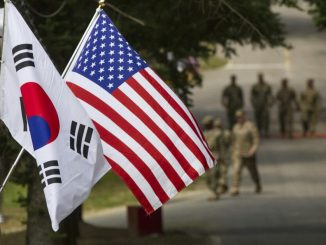
| Published June 22, 2025
The path to freedom is harder than ever. But the North Korean people haven’t given up. Join us this World Refugee Day in offering a way forward.
What the world saw as emergency health measures, North Korea turned into permanent instruments of control. Five years since the start of the pandemic, the fences haven’t come down. The surveillance hasn’t eased. The prison camps remain full—and growing.
According to the United Nations and defector testimonies, the Kim regime used COVID-19 not just to shut its borders, but to deepen repression, shrink freedoms, and decimate the fragile survival systems North Koreans depend on. The result: a society more closed off, more watched, and more desperate than ever before.
🔍 Beyond the Headline: How COVID Controls Amplified Oppression in North Korea
1. Pandemic Measures as a Pretext
During the pandemic, North Korea sealed its borders, scrambled fences along the Yalu and Pyongyang, and entrenched quarantine zones—as revealed in satellite imagery and UN/NGO investigations
These weren’t temporary safeguards. Instead, they-built durable physical infrastructure that justified intensified surveillance and control—with no clear rollback in sight.
2. Human Rights: A Creep, Not a Spike
The UN’s new investigation, echoing the 2014 Commission of Inquiry, underscores that coercive practices like executions, forced labor, starvation, and genocide-level repression continue—and grew under the guise of COVID protocols.
Defectors describe a society where public executions remain routine, and everyday survival is marked by strict movement limits, surveillance, and fear.
3. Economy, Health, and the Kim Regime’s Fragility
The pandemic dealt a double blow: border lockdowns collapsed informal trade, pushing malnutrition and healthcare collapse, while the regime prioritized military and nuclear programs over citizens’ welfare.
One report even estimates the pandemic caused a 4.5% economic contraction, further eroding food security.
4. Defector Despair, Echoing Destruction
More than 300 defectors interviewed by UN researchers shared testimonies of despair—so much so that some wished for war, believing only violence might end their suffering reuters.com+1reuters.com+1.
The upcoming public disclosures from several defectors aim to give voice—face, emotion, humanity—to what statistics alone cannot.
5. Strategic Implications: Rights in Any Engagement
U.N. rights chief James Heenan emphasizes that prison camps and civil repression must remain central in diplomatic negotiations—even as geopolitical priorities loom reuters.com+1breitbart.com+1.
Ignoring the ongoing brutality undercuts any step toward denuclearization or stability.
📝 A New Narrative Angle: “Pandemic Powers”
Story hook: The pandemic wasn’t just a health crisis—it served as a low-cost, high-benefit cloak for regime strengthening.
Lead sentences example:
“What began as a global health fear became North Korea’s perfect cover: under the guise of pandemic safety, the Kim regime fortified fences, amplified surveillance, and reinforced the very prison system it once claimed to abandon.”
Sections to explore:
-
Infrastructure of oppression: How satellite data reveal enduring COVID-era border fortifications.
-
Leverage and control: How restrictions consolidated state control over markets and media.
-
Societal toll: Personal stories of hunger, fear, and execution—from defectors who broke silence.
-
Regime resilience: Did these COVID measures actually strengthen Kim’s rule—or expose fractures?
-
Global stakes: Why human rights must anchor any policy toward North Korea.

Photo: Reuters
💰 Decimated Market Activity: The Everyday Impact
Beyond political control, North Korea’s prolonged border closures and internal restrictions crushed the informal markets that ordinary citizens depend on. As former UN Special Rapporteur Tomas Ojea-Quintana noted back in March 2022:
“The prolonged border closures and restrictions on movement in-country have decimated the market activity that has become essential for the general population to access basic necessities.”
– Tomas Ojea-Quintana, Human Rights Watch, March 2022
Without access to Chinese goods, black-market medicine, or food supplies, many North Koreans were pushed into extreme hunger and economic desperation—even as the regime channeled resources into missile tests and elite control.
📝 Bottom Line
North Korea’s COVID-era restrictions were never just about public health—they became a strategic means of tightening authoritarian control. From decimated market activity to strengthened border fortifications, the regime exploited the pandemic to suppress movement, silence dissent, and reinforce its grip on a starving population.
As the world moves on from the pandemic, the invisible walls built inside North Korea remain. Any diplomatic, humanitarian, or security strategy must start with this reality: human rights are not a side issue—they are the central crisis.
SOURCES: BREITBART – U.N.: North Korea Still Oppressing Citizens with Coronavirus Controls
REUTERS – Rights abuses continue in North Korea a decade after probe, says UN investigator
LIBERTY IN NORTH KOREA – Inside North Korea: People still suffer legacy of pandemic-era controls





Be the first to comment